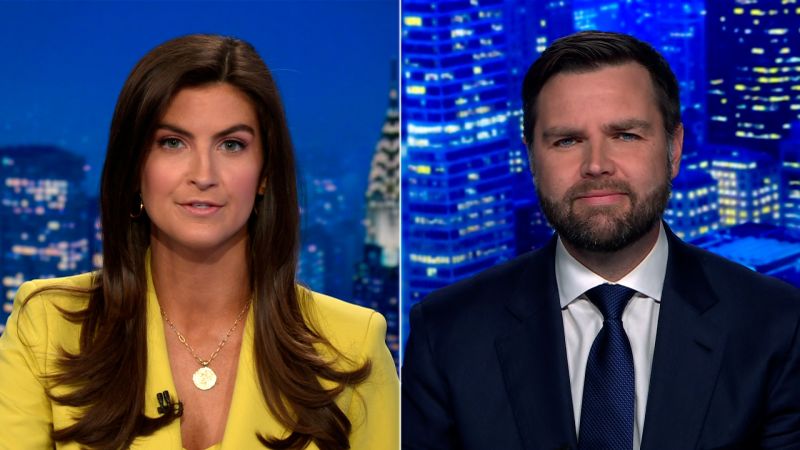During an interview with CNN’s Kaitlan Collins, Senator J.D. Vance of Ohio was questioned about his apparent double standard in condemning pro-Palestinian protesters on college campuses while expressing support for the January 6 protesters who stormed the US Capitol. Collins challenged Vance on this discrepancy, highlighting the differences in how he views and responds to these two groups of protesters. This line of questioning aimed to hold Vance accountable for his contradictory stance on protests and to question the underlying reasons for his differing reactions.
Vance’s response to Collins’ inquiry focused on the perceived violence and extremism of the protests in question. He argued that the actions of the January 6 protesters were not representative of the broader group supporting political change, while he criticized the pro-Palestinian protesters for alleged anti-Semitic behavior on college campuses. Vance sought to differentiate between the two groups based on his interpretation of their motives and methods, suggesting that his support for one and condemnation of the other was justified by these distinctions. However, Collins continued to press Vance on his justification for this double standard, emphasizing the need for consistency and fairness in his response to protests.
The exchange between Collins and Vance reflects larger debates about how differing forms of protest are perceived and interpreted by politicians and the public. Vance’s stance on the January 6 protesters and pro-Palestinian activists raises questions about his own biases, values, and political affiliations. By challenging Vance on his contradictory responses to these two groups, Collins highlights the importance of accountability and integrity in political discourse. This interrogation of Vance’s positions serves as a reminder of the complexities and nuances involved in navigating issues of protest, free speech, and political expression.
Vance’s attempt to defend his support for the January 6 protesters while condemning pro-Palestinian activists on college campuses reveals underlying tensions within the political landscape. His arguments about violence, extremism, and anti-Semitism reflect broader narratives about the perceived dangers of certain forms of protest and dissent. By addressing these tensions in his responses to Collins’ questioning, Vance exposes the challenges of navigating divisive issues and maintaining consistency in political messaging. This discussion sheds light on the complexities of political discourse and the ways in which individuals must grapple with competing interests and principles when engaging with protests and demonstrations.
Collins’ interrogation of Vance underscores the importance of holding public figures accountable for their words and actions, particularly when it comes to issues of protest and dissent. By challenging Vance on his double standard in responding to different forms of protest, Collins highlights the need for consistency and integrity in political leadership. This exchange serves as a reminder of the power dynamics at play in public discourse and the responsibility that politicians have to engage with issues of protest and dissent in a fair, transparent, and respectful manner. Overall, the interview between Collins and Vance showcases the complexities and challenges of navigating political messaging in today’s polarized and contentious climate.
In conclusion, the exchange between Collins and Vance on the topic of protests and political expression reveals broader tensions within the political landscape and the complexities of navigating divergent perspectives on dissent. Vance’s attempt to justify his support for the January 6 protesters while condemning pro-Palestinian activists on college campuses exposes underlying biases and values that shape his responses to different forms of protest. By interrogating Vance on his double standard, Collins emphasizes the importance of consistency, fairness, and integrity in political discourse. This discussion highlights the challenges of engaging with divisive issues and maintaining ethical standards in public leadership, serving as a reminder of the power dynamics at play in shaping public narratives around protest and dissent.













